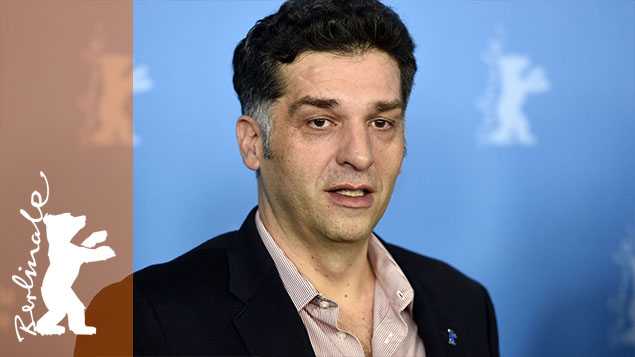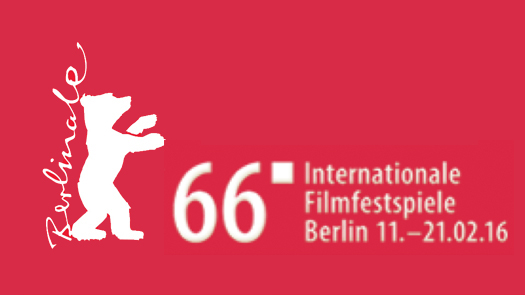Berlin Film Festival 2016: Death in Sarajevo: An interview with Denis Tanovic

Danis Tanovic is a Bosnian screenwriter and filmmaker. His 2001 drama No Man’s Land won him the Academy award for Best Foreign Film. He has since directed seven features and formed his own grassroots political party in Bosnia and Herzegovinia, Nasa Stranka. His latest feature, Death in Sarajevo, is an enthralling ensemble drama that acts as a cross-section of contemporary Bosnian society.
So the initial idea for the story started with the play by Bernard-Henry Lévy, Hotel Europe. Can you talk a little about how you came across it and how your script came about?
The first idea was that I do a documentary about it, but the whole text takes place in one room preparing his speech for 90 minutes. It wasn’t interesting enough so I gave up on it for a bit and came back with the idea of enveloping his text with my own, and to show the other realities around him. I’d like to think of the theatre piece and film as complementary and am actually toying with the idea of showing them, presenting them together.
We really enjoyed how you used the ensemble cast. Was this idea part of the initial concept?
There is no main character; I didn’t want to focus on Jacques Weber’s character. I needed these different levels and layers to tell this story . I think it is important to show different perspectives, to show what divides people and what brings them together. There are different groups: the mafia in the basement secretly keeping the hotel together, the workers in the kitchen forming a revolution.
Death in Sarajevo very openly discusses politics and history in Bosnia and there is a great sense of a lingering trauma. Do you think this is still pervasive in Bosnian society?
Welcome to my world. The problem with my country is that no one won. Everyone is trying to prove that they were the good guys, which is a huge problem as it means our history is never defined. Just look at the Oscars – Son of Saul has been nominated but if you go to Hungary, people still deny the Holocaust. Every society seems to have these traumas and guilt, which causes revisionism and stops us from working towards building and improving. We’re living in the 21st century and there are still people living in Sarajevo without water. Hello!? We are sending machines to Mars but also still stuck arguing what happened 100 years ago. Was Gavrilo Princip a terrorist or was he a freedom fighter or was he a Serb nationalist? People are more passionate about this than the important issues. This isn’t just old historians, this is the young generation too, which is the greatest shame because they are the most affected by a lack of thinking of the future.
I think what’s missing today in Europe, and I know how corny this sounds, is love. When we start giving love to each other we can start to build real bridges. She and I (points to the Serbian journalist) used to be from the same country and now we are supposed to hate each other. This kind of hatred affects all thinking. How should I feel about Nikolai Tesla? Seriously! Should I question Einstein’s theories because he was Jewish? There is a fear that is eating people alive and it’s not only in my country, it’s all over Europe. Except for maybe Iceland, they are the only ones who had the sense to kick out their bankers.
The inequality is growing more and more, still. Bosnia has never been richer than it is now, yet there are still people struggling with poverty and unemployment and I see this all over Europe. The population is shrinking so you’d think there’d be a more equal division of riches, but I don’t see it. I don’t think this is sustainable, there has to be a reset and I think it will happen soon.
In 2008, you took a more active role in politics with the formation of the political party Nasa Stranka. Could you talk a little about that?
I learned things that I would never learn in film. I think as a director you need to seek out experience from other domains. Our political system is so confused that if you were to implement it into any “normal” country, like Germany or France. You would have war in one week. It’s amazing that we’re still here. I took two years and I stopped making movies. I wanted to be 100% committed to this idea of building a party. I didn’t want to be a politician, I wanted to be a voice for citizens. I think asking questions is always a good beginning. I had a few fights that I was proud of, but ultimately it wasn’t enough for me. Every time I tried to make a change or bring up an issue, I would hit a wall. I wasn’t getting answers. So I came back to filmmaking. I talk about things in my films that everyone says or thinks behind closed doors but would never say out loud.
Do you think Death in Sarajevo will exclude audiences who are ignorant of Bosnia’s history, or does it try to educate them?
Well it’s not entertainment, I’m not making films to get that Ferarri. I always make a film with an audience in mind. I made Cirkus Colombia for my parents because I know they love Italian films and I loved Italian neo-realism, and so I tried to make Bosnian neo-realism. I made it for them and I wanted to tell them “You fucked up, it was a beautiful country and your generation fucked it up and killed our generation.” I made Iron Picker because I couldn’t believe that the same people who saved their neighbors from snipers in the 90s are letting their gypsy neighbors die over something petty like bills. I made Death in Sarajevo for the people of Sarajevo. I made it for my neighbours. I think Bosnia is the most beautiful country and I want it to work. I want to build to a better future. I want to have hope.
Sean Gallen
Smrt u Sarajevu (Death in Sarajevo) does not have a UK release date yet.
Read more of our reviews and interviews from the festival here.
For further information about Berlin Film Festival 2016 visit here.


























Facebook
Twitter
Instagram
YouTube
RSS